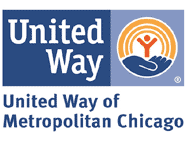Understanding Premises Liability in Cook County

Premises liability lawsuits can happen when a person gets hurt on property someone else owns or manages. However, not all injuries that occur on someone else’s property are grounds for a lawsuit. There are some specific rules that help courts determine whether the owner or manager of a property is liable to the injured person. Whether you can recover compensation for your injuries depends on a number of facts and circumstances, including whether you had permission to be on the property and how the accident happened. If you were injured on another person’s property and want to know whether you can bring a premises liability suit, you will need to consult an attorney.
Who Can Bring a Premises Liability Case?
The type of duty a property owner or manager has to keep others on his premises safe largely depends on whether the injured person was supposed to be there. “Invitees” have a business purpose for entering, like a repairman you invite into your home. “Licensees” are social guests, like neighbors you invite over for a barbeque. For these visitors, a property owner must either fix any dangerous conditions or warn visitors about the danger. A retail manager, for example, must either dry a wet floor or use a “wet floor” sign.
“Trespassers” are those who enter the premises without permission. The property owner only has a duty to not “willfully or wantonly” injure them, for example, by setting a “booby trap.” (This does not apply to true self-defense situations.) There are exceptions, mostly related to situations in which a child predictably trespasses.
What Does an Injured Person Need to Prove in These Cases?
There are a few things you will need to prove in a premises liability case (assuming you were not a trespasser). They are:
- Danger - A condition on the property was unreasonably dangerous.
- Knowledge - The owner or manager knew or should have known of the danger. For example, if a spill just happened a moment ago and no one said anything, a grocery store manager might not know about it yet.
- Anticipation - The owner or manager should have anticipated that visitors would not notice the danger, or would be unable to protect themselves from it. For example, guests on a farm may not be aware that a fence has an electric charge and could lean against it.
- No warning - The owner or manager neither warned nor otherwise protected visitors from the danger.
- Causation - The visitor’s injury was the direct result of the danger.
Proving a premises liability claim can be complicated. There are a lot of moving parts in these claims.
Call a Cook County Premises Liability Lawyer
Adler Injury Law, Ltd. can help determine whether you may have a premises liability claim. Our skilled Chicago premises liability attorneys will fight for you to receive compensation for your injury if you have a claim. Call 312-236-2700 to start with a free consultation.
Source:
https://www.ilga.gov/legislation/ilcs/ilcs3.asp?ActID=2048&ChapterID=57
No Fee Unless We Win







 312-236-2700
312-236-2700






